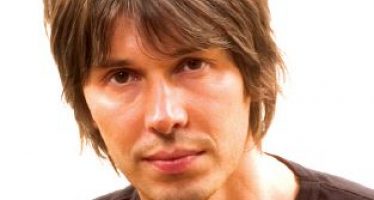Stephen Hawking: In the Footsteps of Sir Isaac Newton
 To grasp the size, shape and nature of the universe requires a vast mind such as only very few possess. However, in order to truly understand space, and how it came about, a mind the size of Stephen Hawking’s is needed. Where even renowned physicists struggle to keep up, Mr Hawking effortlessly connects the dots, plays with the resulting lines and draws conclusions that cause universal awe.
To grasp the size, shape and nature of the universe requires a vast mind such as only very few possess. However, in order to truly understand space, and how it came about, a mind the size of Stephen Hawking’s is needed. Where even renowned physicists struggle to keep up, Mr Hawking effortlessly connects the dots, plays with the resulting lines and draws conclusions that cause universal awe.
For all its genius, Mr Hawking’s mind is not an open book: It operates at a level and pace that is quite peerless. To convey the physicist’s thoughts to the general public requires a process of simplification which constitutes a tour-de-force in itself. In the mid-1980s, editors of US publishing house Bantam Books laboured incessantly for almost three years to make Mr Hawking’s thoughts on the origins of the universe accessible to all. The resulting A Brief History of Time: From the Big Bang to Black Holes went on to sell well over ten million copies. The book was translated into 35 languages.
Warned by his publisher that for every equation included, readership would plummet by about 50%, the British physicist reluctantly ejected all formulae from his script with the single exception of Albert Einstein’s mass-energy equivalence E = mc2. From the onset, Mr Hawking wanted to share his thoughts and ideas with as broad a readership as possible. Still, A Brief History of Time – a depository of mind-blowing concepts – requires the frequent re-reading of passages, and even entire chapters, if its meaning is to be fully understood.
In the original introduction, since removed for copyright reasons, American astrophysicist Carl Sagan called Stephen Hawking a worthy successor to both Isaac Newton and Paul Dirac, the British theoretical physicist who was instrumental in the development of quantum mechanics.
Though Stephen Hawking would likely have excelled in any field of his choosing, physics and chemistry were not his first choice: He’d much rather have studied mathematics at Oxford. As it happened, the life of a physics student did not offer young Stephen much of a challenge. In fact, he was bored for most of the time. He stumbled through and landed a first class BA degree – the ticket to a graduate degree from Trinity Hall Cambridge.
Stephen Hawking soon established a reputation for academic brilliance. In 1964, he successfully challenged the work of Professor Fred Hoyle, a noted astronomer famous for his rejection of the Big Bang Theory.
As he set off on his career in science by the mid-1960s, Stephen Hawking faced increasingly tough battles with his own failing physique. Suffering from a motor neuron disease akin to amyotrophic lateral sclerosis (ALS), doctors in 1963 gave the then 21-year old Stephen Hawking just two years to live. In a shining example of mind over matter, Mr Hawking proved them dead-wrong.
Today, 51 years later, bound to a wheelchair and hooked to a speech computer, Mr Hawking keeps the world spellbound with scientific theories on infinity, eternity, time travel, expanding, imploding and parallel universes, and black holes that gobble up time, space and anything else that dares come close.
You may have an interest in also reading…
Brian Cox: Science for the Masses
Amongst the remains of Kolmanskop, an old mining town in the Namib Desert, a scrawny metrosexual soliloquizes about the nature
Marina Silva: Insistence That May Yet Pay Off
Brazil may not yet be ready for her, but Marina Silva is the name to watch. The former senator for
Danièle Nouy: Getting Tough with Bankers
It is her job to keep Europe’s banks on the straight and narrow and remind their executives that honesty pays.
















































































